第47章 NOT CURATE(4)
"Of the other points of comparison there are two which I would chiefly dwell on:and first as to the language.A good deal of this is positively barbarous.'Environment,''vestural,''stertorous,''visualized,''complected,'and others to be found I think in the first twenty pages,--are words,so far as I know,without any authority;some of them contrary to analogy:and none repaying by their value the disadvantage of novelty.To these must be added new and erroneous locutions;'whole other tissues'for _all the other_,and similar uses of the word _whole_;'orients'for _pearls_;'lucid'and 'lucent'employed as if they were different in meaning;'hulls'perpetually for _coverings_,it being a word hardly used,and then only for the husk of a nut;'to insure a man of misapprehension;''talented,'a mere newspaper and hustings word,invented,I believe,by O'Connell.
"I must also mention the constant recurrence of some words in a quaint and queer connection,which gives a grotesque and somewhat repulsive mannerism to many sentences.Of these the commonest offender is 'quite;'which appears in almost every page,and gives at first a droll kind of emphasis;but soon becomes wearisome.'Nay,''manifold,''cunning enough significance,''faculty'(meaning a man's rational or moral _power_),'special,''not without,'haunt the reader as if in some uneasy dream which does not rise to the dignity of nightmare.Some of these strange mannerisms fall under the general head of a singularity peculiar,so far as I know,to Teufelsdrockh.
For instance,that of the incessant use of a sort of odd superfluous qualification of his assertions;which seems to give the character of deliberateness and caution to the style,but in time sounds like mere trick or involuntary habit.'Almost'does more than yeoman's,_almost_slave's service in this way.Something similar may be remarked of the use of the double negative by way of affirmation.
"Under this head,of language,may be mentioned,though not with strict grammatical accuracy,two standing characteristics of the Professor's style,--at least as rendered into English:_First_,the composition of words,such as 'snow-and-rosebloom maiden:'an attractive damsel doubtless in Germany,but,with all her charms,somewhat uncouth here.'Life-vision'is another example;and many more might be found.To say nothing of the innumerable cases in which the words are only intelligible as a compound term,though not distinguished by hyphens.Of course the composition of words is sometimes allowable even in English:but the habit of dealing with German seems to have produced,in the pages before us,a prodigious superabundance of this form of expression;which gives harshness and strangeness,where the matter would at all events have been surprising enough._Secondly_,I object,with the same qualification,to the frequent use of _inversion_;which generally appears as a transposition of the two members of a clause,in a way which would not have been practiced in conversation.It certainly gives emphasis and force,and often serves to point the meaning.But a style may be fatiguing and faulty precisely by being too emphatic,forcible and pointed;and so straining the attention to find its meaning,or the admiration to appreciate its beauty.
"Another class of considerations connects itself with the heightened and plethoric fulness of the style:its accumulation and contrast of imagery;its occasional jerking and almost spasmodic violence;--and above all,the painful subjective excitement,which seems the element and groundwork even of every deion of Nature;often taking the shape of sarcasm or broad jest,but never subsiding into calm.There is also a point which I should think worth attending to,were Iplanning any similar book:I mean the importance,in a work of imagination,of not too much disturbing in the reader's mind the balance of the New and Old.The former addresses itself to his active,the latter to his passive faculty;and these are mutually dependent,and must coexist in certain proportion,if you wish to combine his sympathy and progressive exertion with willingness and ease of attention.This should be taken into account in forming a style;for of course it cannot be consciously thought of in composing each sentence.
"But chiefly it seems important in determining the plan of a work.If the tone of feeling,the line of speculation are out of the common way,and sure to present some difficulty to the average reader,then it would probably be desirable to select,for the circumstances,drapery and accessories of all kinds,those most familiar,or at least most attractive.A fable of the homeliest purport,and commonest every-day application,derives an interest and charm from its turning on the characters and acts of gods and genii,lions and foxes,Arabs and Affghauns.On the contrary,for philosophic inquiry and truths of awful preciousness,I would select as my personages and interlocutors beings with whose language and 'whereabouts'my readers would be familiar.Thus did Plato in his Dialogues,Christ in his Parables.